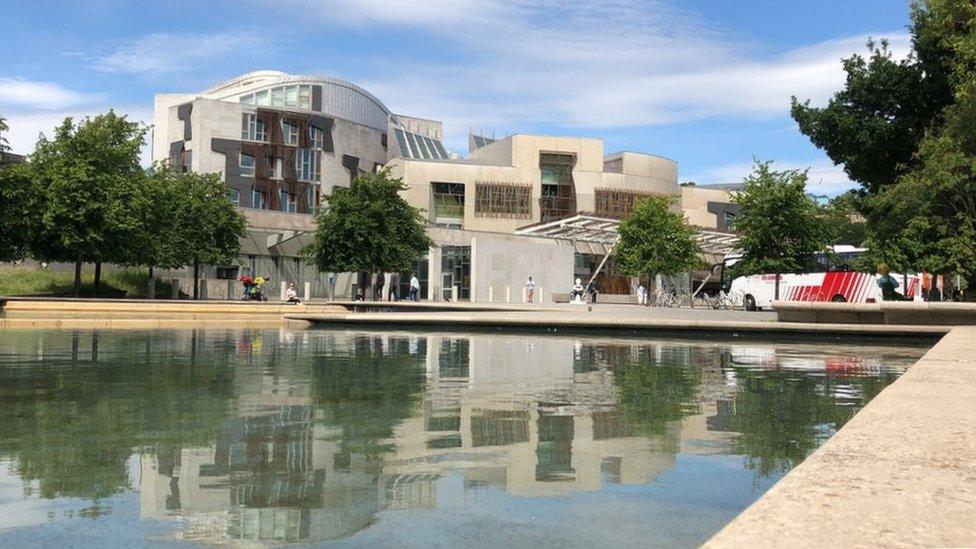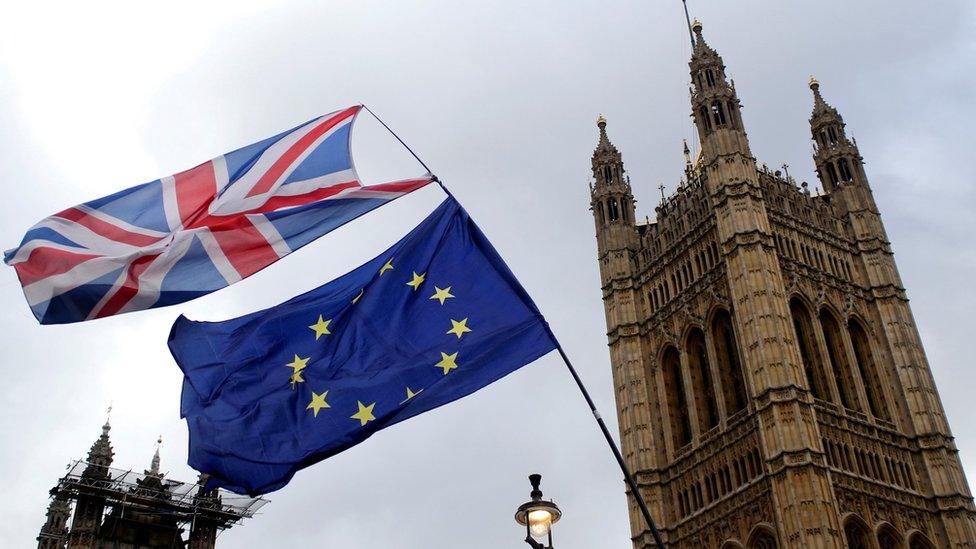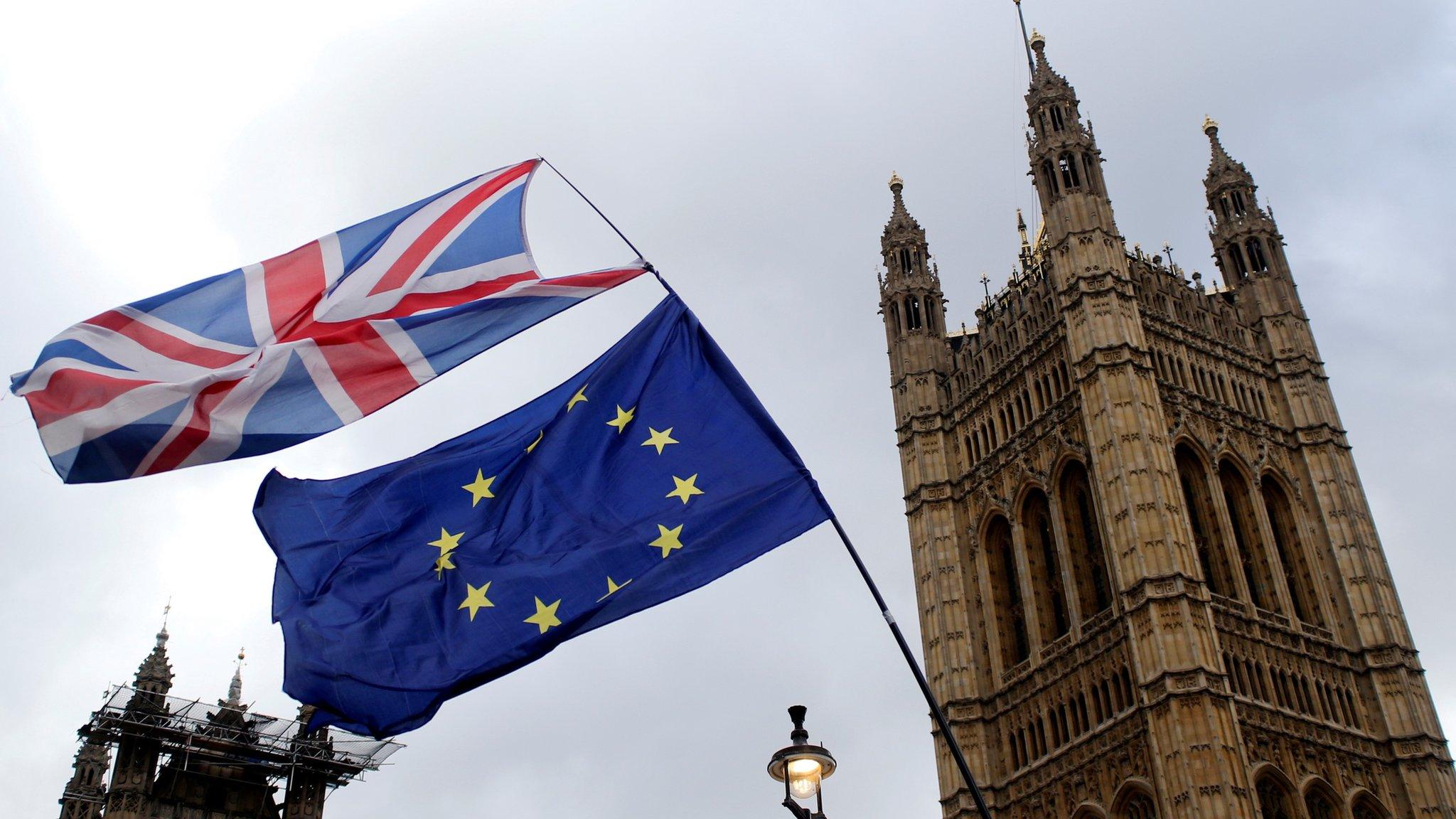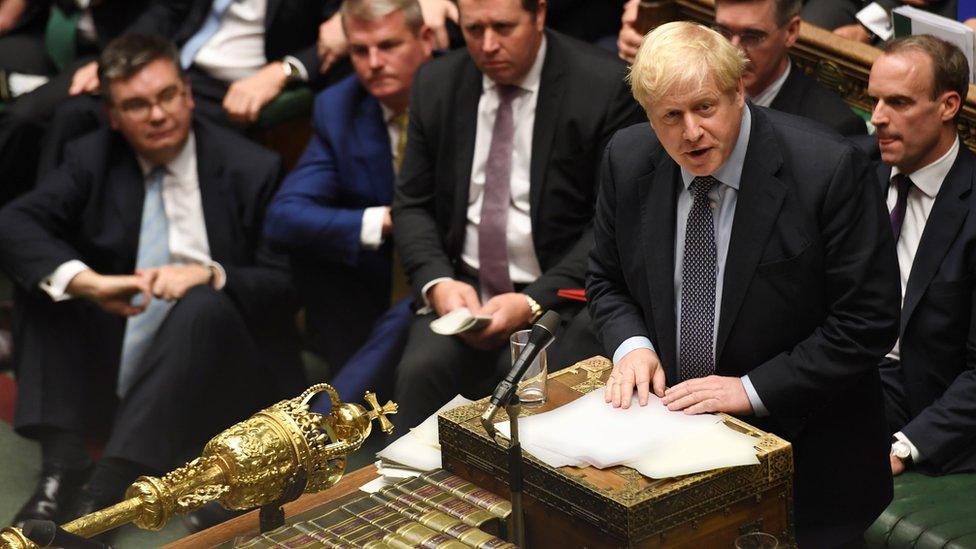Holyrood will not be recalled for Brexit debate
- Published

Plans to recall the Scottish Parliament to debate the UK government's Brexit deal have been put on hold.
Holyrood's presiding officer said he was "not minded" to bring MSPs back from recess following developments at Westminster on Tuesday evening.
Ministers wanted the chamber to sit on Thursday so that MSPs could reject the deal and call for a new referendum instead.
But MPs voted to approve the withdrawal agreement negotiated by Boris Johnson.
They then voted against the government's timetable to fast-track the legislation through the Commons in just three days.
The Scottish government had requested that MSPs sit ahead of their scheduled return day on 29 October so that they could withhold consent on the prime minister's deal.
Allow X content?
This article contains content provided by X. We ask for your permission before anything is loaded, as they may be using cookies and other technologies. You may want to read X’s cookie policy, external and privacy policy, external before accepting. To view this content choose ‘accept and continue’.

Mr Macintosh said on Tuesday that given the "ongoing lack of clarity" around the timetable for the European Union Withdrawal Agreement Bill, he had deferred his decision.
MPs voted by 322 to 308 to reject Mr Johnson's plan to push legislation approving his Brexit deal through the Commons in just three days.
The prime minister told MPs he would now "pause" the Withdrawal Agreement Bill until the EU makes a decision on whether to grant another Brexit delay.
In a message to MSPs, Mr Macintosh said: "Given the ongoing lack of clarity around the timetable for the European Union (Withdrawal Agreement) Bill, I have deferred my decision on a recall of the Scottish Parliament.
"I want to ensure that the parliament has the opportunity to express its view on the bill but there is no longer an immediate need to do so.
"I can also assure you that I have spoken to all the party business managers this evening and all are in agreement. I will continue to monitor developments at Westminster and update members if necessary."
The UK government would normally seek consent from Holyrood before passing legislation which cuts across devolved areas, although it passed a previous Brexit bill - the EU Withdrawal Act - despite MSPs overwhelmingly rejecting it.
The Scottish government has since refused to put any Brexit primary legislation forward for consent votes, saying the devolution system is "broken" and must be reformed.
Opposition parties were "outraged" by the three-day timetable and the amount of time it left for scrutiny, instead calling for the deadline to be extended.

MPs could face a three-day timetable to consider Brexit legislation
The Scottish government argues that the "best option for the UK as a whole" is to remain in the EU, and supports "a further referendum" on Brexit.
Ministers have put forward a "legislative consent memorandum" explaining their opposition to the deal, but have not put forward a formal consent motion for MSPs to vote on.
Brexit Secretary Mike Russell said that Holyrood "should not consent to any part of the bill", and should instead "indicate its opposition to the UK's withdrawal from the EU and to the withdrawal agreement".
'Not serious'
He said the withdrawal agreement as drafted would do "significant damage" to Scotland, and was being "rushed through without the opportunity for proper parliamentary scrutiny in either the UK or Scottish parliaments".
And he said the legislation should be scrapped, and that the "responsible step would now be to legislate for a further referendum to allow the electorate to decide" the fate of Brexit.
The Scottish Conservatives said the Scottish government "is not an administration serious about making Brexit work for the people of Scotland", and was "openly coveting a no-deal scenario because it thinks that will boost support for separation".
MSP Adam Tomkins said: "As a government, the SNP's behaviour has been abhorrent, and is an insult to the people it is meant to be governing."
A Scottish Parliament spokesman said a decision on whether to recall MSPs would depend on the timetable at Westminster.
The presiding officer will make a decision "once the House of Commons has reached a view", and the spokesman said parties would be informed "as soon as possible thereafter".
- Published23 January 2020

- Published22 October 2019
